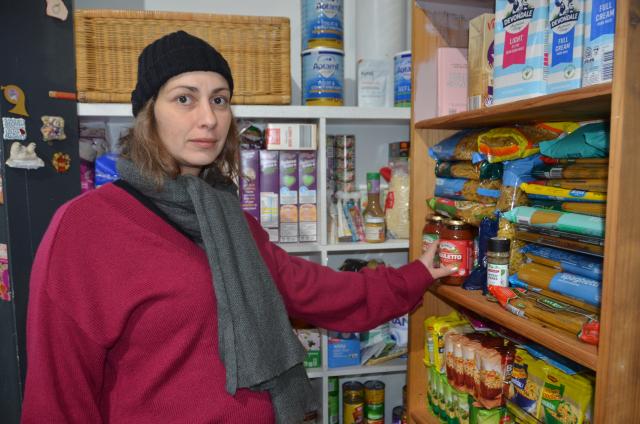By Jamie Salter
Pakenham families are feeling the pinch this winter as a result of stagnant wages and cost-of-living pressures.
Inflation is at a 21-year high of 5.1 per cent and is expected to increase further in the near-term.
Sammy’s Community Pantry founder Larissa Damouni said young and single mums were crying out for support.
“It’s really heartbreaking – new people are reaching out for help who haven’t needed it before,“ she said.
“You get a lot of mums coming in that need formula and nappies because they aren’t cheap and they eat into most people’s disposable income.“
Larissa recently experienced a local mum with two babies offering her last $5 in exchange for food.
She said a bigger food service needed to be based in Pakenham, such as The 4Cs Crisis Relief Centre which permanently closed.
“We need something like BK 2 Basics here because people don’t have money to travel 40 minutes return – petrol is too expensive,“ she said.
Pakenham Living and Learning Centre chief executive officer Miriam Cadwallader said demand for food had “skyrocketed“.
“We have our 24/7 community pantry and it’s wiped out every night,“ she said.
“It’s just gotten worse and I’ve seen different types of people come through now including lots of young mums and dads, the elderly and retirees.
“The other day we had a single dad who couldn’t afford groceries that week and after pay day he came in and was putting groceries back on the shelf saying the pantry saved him and his kids.
“People are living paycheck to paycheck, some have over-committed with rent or car payments and, now that prices have gone up, they haven’t budgeted for it.“
The centre also supplies halal food packs for about 50 migrant families per week.
According to the Reserve Bank of Australia (RBA), Covid-related disruptions to supply chains and the war in Ukraine contributed to an increase in inflation, along with domestic capacity constraints and the tight labour market contributing to the upward pressure on prices.
On 7 June, the RBA lifted the cash rate by half a percentage point to 0.85 per cent, adding costs for borrowers paying off their homes.
“Today’s increase in interest rates by the board is a further step in the withdrawal of the extraordinary monetary support that was put in place to help the Australian economy during the pandemic,“ Reserve Bank governor Philip Lowe said at the time.
According to RateCity research, if the banks pass this hike on in full, the average borrower with a $500,000 debt and 25 years remaining will see their repayments rise by $133 a month.
A new national survey commissioned by Savvy revealed 50 per cent of 18 to 24-year-olds were stressed about rent or potential rent increases and 1.12 million people spend 46 to 60 per cent of their income on rent.
Savvy chief executive officer Bill Tsouvalas said: “Rental stress isn’t just being a bit worried about a lack of money for luxuries; it’s a real and persistent financial pressure that affects your ability to pay for necessities. A sudden excess payment, repair bill, or urgent appliance replacement could set them on the edge of real financial hardship – or put them in that position almost overnight.“







